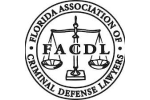to Save Yours
Transmission of Material Harmful to Minors
Experienced Tampa Criminal Defense Lawyer Representing Individuals Facing Child Pornography and Other Serious Sex Crimes
Transmission of material harmful to minors is a crime aimed at preventing individuals from transmitting images or video that contains nudity or sexually explicit content to a minor through email. Like possessing child pornography, transmitting harmful material to a minor is a felony of the third degree; however, one critical difference between these two charges is that a conviction for transmitting harmful material to a minor does not require a defendant to register as a sex offender.
At the Mayberry Law Firm, we have a long history of helping good people who find themselves in bad situations. Attorney Jason Mayberry aggressively negotiates on behalf of his clients, relentlessly pursuing the best possible outcome at every stage. He has spared countless clients from mandatory sex offender registration through his steadfast dedication and outside-the-box thinking. However, as an experienced litigator, Attorney Mayberry confidently relies on his trial skills when the prosecution is unwilling to offer a fair plea agreement.
What is the Crime of Transmitting Material Harmful to Minors?
Under Florida Statutes § 847.0138, it is a crime for a person to send someone they know to be a minor any material that is harmful to minors. Although § 847.0138 does not define the term harmful to minors, the definition is contained in § 847.001, which provides that “harmful to minors” refers to any content that depicts nudity, sexual conduct, or sexual excitement, and,
- The content primarily appeals to the prurient, shameful, or morbid interest;
- The content is patently offensive; and
- The content is without literary, artistic, political, or scientific value.
To violate the terms of § 847.0138, one must send the content to a specific person they know to be a minor. Thus, posting content for public view does not fall within the terms of the statute, even if minors will have access.
What Are the Punishments for Transmitting Material Harmful to Minors?
Transmitting material harmful to minors is a felony of the third degree, which carries a maximum term of five years in jail and a fine of up to $5,000. Transmitting material harmful to minors is not a registerable sex offense.
Transmitting Material Harmful to Minors as a Way Out of Mandatory Sex Offender Registration
Undoubtedly, transmitting material harmful to minors is a serious crime. However, because a conviction for this offense does not require someone to register as a sex offender, a skilled Tampa sex crimes defense lawyer may be able to convince the prosecution to drop more serious charges, such as possession of child pornography, if a defendant is willing to plead guilty to transmitting harmful material to minors.
Of course, prosecutors take a hardline approach to child pornography offenses and rarely make such an offer without a good reason. However, an experienced criminal defense attorney can make a strong case for reduced charges in two distinct situations. First, where a defendant has significant mitigation, such as an impressive work history, a lack of a serious criminal record, or a history of community or civil service, a defense attorney may be able to successfully advocate for a favorable plea to lesser charges. On the other hand, in those cases where the government’s evidence is minimal, or there was a problem with how it was obtained or stored, an attorney may be able to leverage the weaknesses in the prosecution’s case to secure a plea to a less serious offense.
Get Started Creating a Strategic Defense Plan to Child Pornography Charges
If you have recently been charged with a child pornography offense, it’s easy to resign to the fact that you will be found guilty. However, now is not a time to give up hope. At the Mayberry Law Firm, Attorney Jason Mayberry has more than 15 years of experience advocating on behalf of individuals facing these serious charges. We value your input and take the time to listen to what is most important to you before coming up with a strategy to resolve your case with as little impact on your future as possible. To learn more and to schedule a free consultation with a Tampa criminal defense attorney today, call 813-444-7435. You can also reach us through our online contact form. We represent clients throughout Hillsborough County and the surrounding areas.














